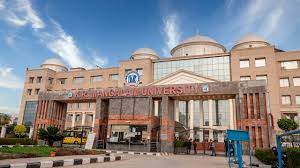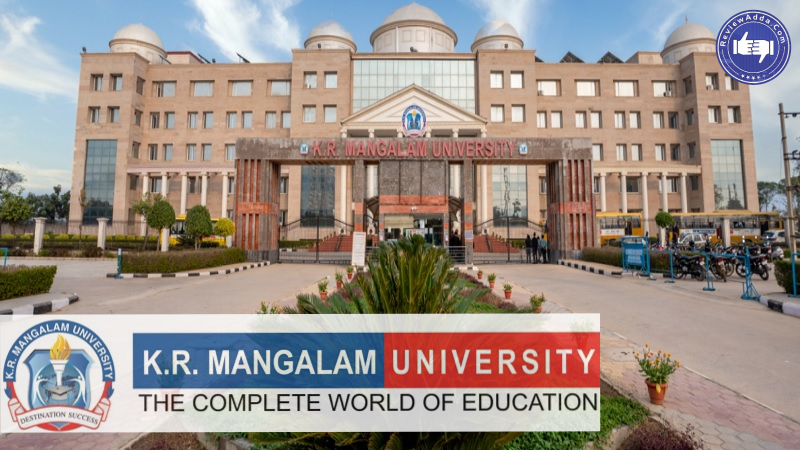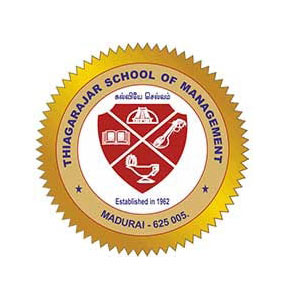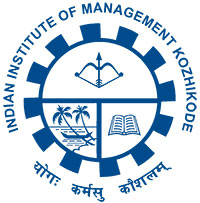B Tech Computer Science Engineering is a 4-year Full-Time undergraduate Course that features the ability to design, develop and use software and hardware systems to process their desired ideas into constructive reality. Students pursuing B Tech CSE programme will get sound knowledge and hands-on practical experience of Computing Principles and their applications in various science and engineering domains.
The program will equip students with strong skills to function on multi-disciplinary teams and formulate and solve various engineering problems, designs, and algorithms. K.R. Mangalam University gives students the knowledge that is required for modern-day professionals
ELIGIBILITY CRITERIA
Candidate must have passed 10+2 examination or equivalent with PCM and with minimum 50% aggregate marks
PROGRAMME DETAILS
PROGRAMME HIGHLIGHTS
B Tech Computer Science and Engineering curriculum is specifically designed in consultation with industry insiders and experts
Consistent mentoring by acclaimed academicians and top industry experts at the Best Engineering College
Futuristic Engineering Kitchen and Research Units
Highly sophisticated laboratories equipped with cutting-edge tech apparatus
Ensuring absolute preparedness for successful career progression
Semester 1
| Semester 1 | |
|---|---|
| Course Title | Credit |
|
Engineering Calculus |
4 |
|
Engineering Physics / Engineering Chemistry |
4 |
|
Basics of Electrical & Electronics Engineering |
4 |
|
Fundamentals of Computer programming |
4 |
|
Engineering Physics Lab/ Engineering Chemistry lab |
1 |
|
Basics of Electrical & Electronics Engineering Lab |
1 |
|
Fundamentals of Computer Programming Lab |
1 |
|
Environmental Studies & Disaster Management |
2 |
Semester 2
| Semester 2 | |
|---|---|
| Course Title | Credit |
|
Linear Algebra and Ordinary Differential Equations |
4 |
|
Object Oriented Programming using C++ |
4 |
|
Engineering Chemistry / Engineering Physics |
4 |
|
Engineering Drawing & Workshop Lab |
2 |
|
Object Oriented Programming using C++ Lab |
1 |
|
Engineering Chemistry Lab / Engineering Physics lab |
1 |
|
Open Elective-I |
3 |
|
VAC II ( Along with Community Service) |
2 |
Semester 3
| Semester 3 | |
|---|---|
| Course Title | Credit |
|
Java Programming |
4 |
|
Discrete Mathematics |
4 |
|
Data Structures |
4 |
|
VAC III |
2 |
|
Java Programming Lab |
1 |
|
Data Structures Lab |
1 |
|
Life Skills for Professionals-I |
3 |
|
Summer Internship / Project-I |
2 |
|
Open Elective |
3 |
|
Fundamentals of AI & Machine Learning |
2 |
Semester 4
| Semester 4 | |
|---|---|
| Course Title | Credit |
|
PROBABILITY AND STATISTICS |
4 |
|
Web Programming with Python and JavaScript Lab |
2 |
| Analysis and Design of Algorithms | 4 |
| Database Management Systems | 4 |
|
Life Skills for Professionals-II |
3 |
| Database Management Systems Lab | 1 |
|
Analysis and Design of Algorithms Lab |
1 |
|
Open Elective |
3 |
|
VAC IV |
2 |
|
Minor Project-I |
2 |
Semester 5
| Semester 5 | |
|---|---|
| Course Title | Credit |
| Theory of Computation | 4 |
| Operating Systems | 4 |
|
Operating System Lab |
1 |
|
Summer Internship/ Project-II |
2 |
|
Life Skills for Professionals-III |
3 |
|
Department Elective-I |
4 |
|
Department Elective-I lab |
1 |
|
Software Engineering |
4 |
Semester 6
| Semester 6 | |
|---|---|
| Course Title | Credit |
|
Computer Organization & Architecture |
4 |
|
Computer Networks |
4 |
|
Introduction of Neural Network and Deep Learning |
4 |
|
Computer Networks Lab |
1 |
|
Competitive Coding Lab |
2 |
|
Introduction to Neural Networks & Deep Learning Lab |
1 |
|
Department Elective -II |
4 |
|
Department Elective -II Lab |
1 |
| Minor Project-II | 5 |
Semester 7
| Semester 7 | |
|---|---|
| Course Title | Credit |
|
Department Elective-III |
4 |
|
Department Elective-IV |
4 |
|
Department Elective-III Lab |
1 |
|
Department Elective-IV lab |
1 |
|
Minor Project-III |
2 |
Semester 8
| Semester 8 | |
|---|---|
| Course Title | Credit |
|
Industrial Project/R&D Project/Start-up Project |
12 |
PROGRAMME OUTCOMES
Engineering Graduates will be able to:
PO1. Engineering knowledge: Apply the knowledge of mathematics, science, engineering fundamentals, and an engineering specialization to the solution of complex engineering problems.
PO2. Problem analysis: Identify, formulate, review research literature, and analyze complex engineering problems reaching substantiated conclusions using first principles of mathematics, natural sciences, and engineering sciences.
PO3. Design/development of solutions: Design solutions for complex engineering problems and design system components or processes that meet the specified needs with appropriate consideration for the public health and safety, and the cultural, societal, and environmental considerations.
PO4. Conduct investigations of complex problems: Use research-based knowledge and research methods including design of experiments, analysis and interpretation of data, and synthesis of the information to provide valid conclusions.
PO5. Modern tool usage: Create, select, and apply appropriate techniques, resources, and modern engineering and IT tools including prediction and modeling to complex engineering activities with an understanding of the limitations.
PO6. The engineer and society: Apply reasoning informed by the contextual knowledge to assess societal, health, safety, legal and cultural issues and the consequent responsibilities relevant to the professional engineering practice.
PO7. Environment and sustainability: Understand the impact of the professional engineering solutions in societal and environmental contexts, and demonstrate the knowledge of, and need for sustainable development.
PO8. Ethics: Apply ethical principles and commit to professional ethics and responsibilities and norms of the engineering practice.
PO9. Individual and team work: Function effectively as an individual, and as a member or leader in diverse teams, and in multidisciplinary settings.
PO10. Communication: Communicate effectively on complex engineering activities with the engineering community and with society at large, such as, being able to comprehend and write effective reports and design documentation, make effective presentations, and give and receive clear instructions.
PO11. Project management and finance: Demonstrate knowledge and understanding of the engineering and management principles and apply these to one’s own work, as a member and leader in a team, to manage projects and in multidisciplinary environments.
PO12. Life-long learning: Recognize the need for, and have the preparation and ability to engage in independent and life-long learning in the broadest context of technological change.
Programme Educational Objectives (PEOs)
PEO1 - Develop knowledge and abilities in the area of Computer Science and Engineering and create a foundation of lifelong learning to facilitate progressive careers in industry and in pursuit of higher studies.
PEO2 - To provide our students with the technical and analytical abilities they need to create creative solutions to challenging real-world issues using both current and emerging technology.
PEO3 - To provide our students with the necessary communication and interpersonal skills, multidisciplinary teamwork, and leadership abilities so they can achieve their professional obligations.
PEO4 - To make students aware of current concerns so they can develop morals and sense of responsibility for themselves, their coworkers, society, and the nation
Programme Specific Outcomes (PSOs)
PSO1 - Acquire a comprehensive understanding of the fundamental principles, theories, and practices in Computer Science and Engineering, enabling graduates to apply their knowledge effectively in various professional settings.
PSO2 - Demonstrate proficiency in utilizing current and emerging technologies to analyze and solve complex real-world problems in the field of Computer Science and Engineering. Graduates should be capable of developing innovative solutions and adapting to technological advancements.
PSO3 - Develop strong communication and interpersonal skills, including the ability to collaborate effectively in multidisciplinary teams, present technical information clearly, and engage in professional discussions. Graduates should also demonstrate leadership qualities and be able to assume responsibilities in their chosen field.
PSO4 - Cultivate a sense of ethics, social responsibility, and awareness of current concerns in the field of Computer Science and Engineering. Graduates should understand the importance of ethical practices, sustainable development, and contribute positively to their workplace, society, and the nation.







